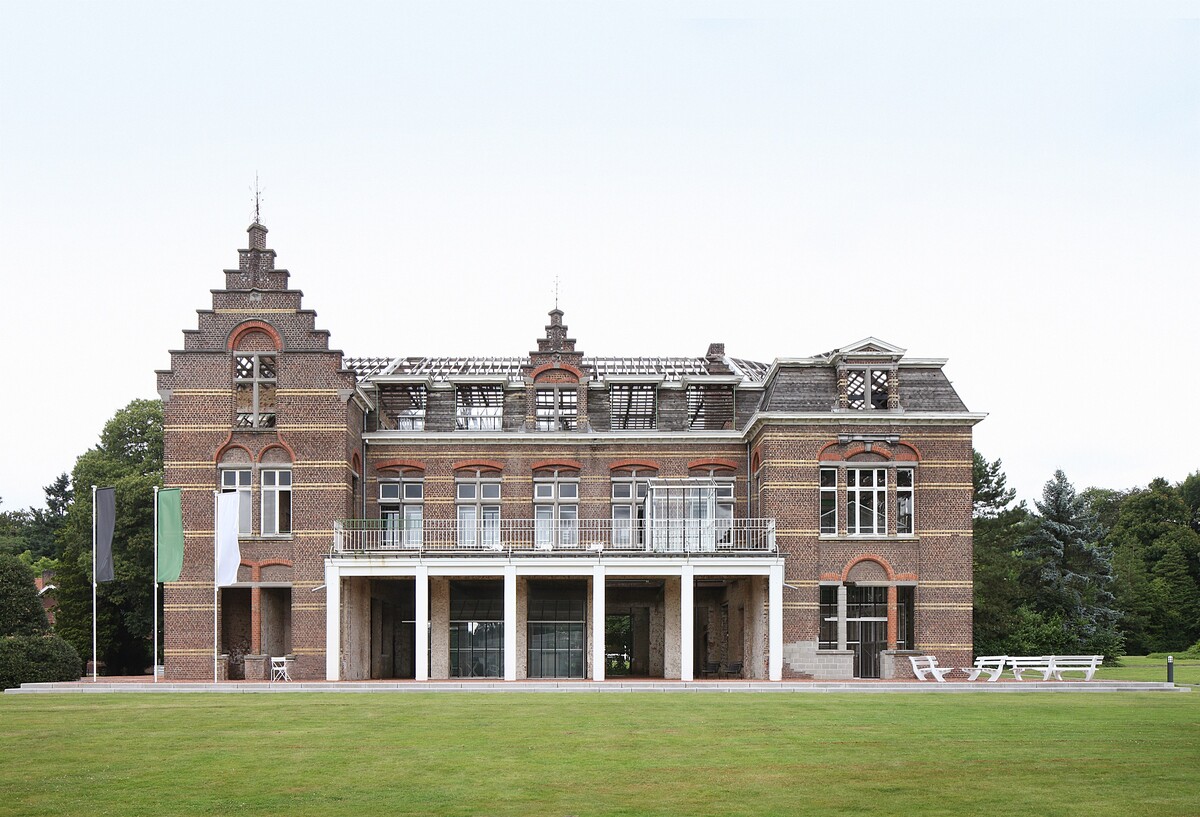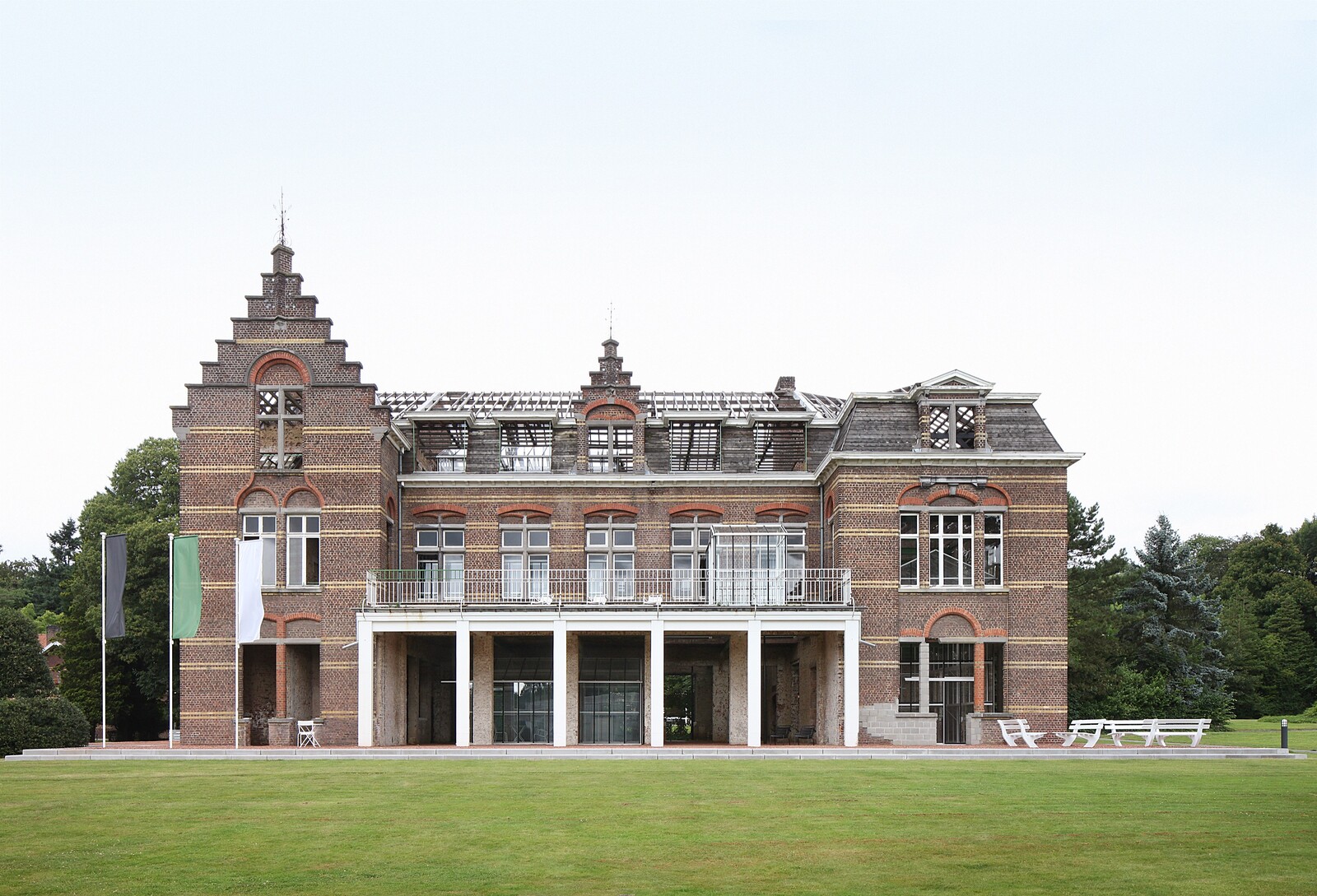Psychiatry, Architecture, and Knowledge
Live roundtable with Jan de Vylder, Meredith TenHoor, Magaly Tornay, and Camille Robcis
December 1, 2020
Join us on e-flux Video & Film on Tuesday, December 1, 2020 at 6pm CET (12pm EST) for a live roundtable with Camille Robcis (Columbia University), Meredith TenHoor (Pratt Institute), Jan de Vylder (Architecten Jan de Vylder Inge Vinck and the ETH Zurich), and Magaly Tornay (Universität Bern).
Psychiatry, Architecture, and Knowledge
Of all the fields of institutional medicine, psychiatry presents the dilemma of care in its most intractable form—the impossibility of drawing a fixed line between “attending to,” in the sense of solicitude, and “watching over.” in the sense of surveillance. The painful irreducibility of this dilemma haunts the history of psychiatric architecture, which presents itself as a potentially endless sequence of improvements. But do these improvements constitute progress?
Camille Robcis’ and Meredith TenHoor’s research examines the history and architectural legacies of institutional psychotherapy, a movement born in France during the Second World War that called for the profound transformation of the theory and practice of psychiatric care, through the lens of Marxism and Lacanian psychoanalysis. According to institutional psychotherapy, the psychiatric hospital could function as a microcosm of society at large, as a space to promote horizontal and anti-authoritarian social relations, and as a template to better understand alienation and offer perspectives for “disalienation.” Institutional psychotherapy shaped the worked of many prominent thinkers including François Tosquelles, Frantz Fanon, Félix Guattari, and Michel Foucault. Robcis will map out the general history of this movement, and TenHoor will focus on the work of the architect Nicole Sonolet, who, through her collaborations with psychotherapists, made major yet largely unrecognized contributions to the design of mental hospitals and clinics in France.
In contrast, Magaly Tornay’s recent research brings attention to an often overlooked side of psychiatric care: the surveillance of care workers themselves. Her new book, Träumende Schwestern, deals with the compulsory dream analysis of nurses working at the clinic of Münsterlingen. The asylum, in her reading, becomes a place where no private space is insulated from the clinical and administrative functions of the institution.
The work of these historians provides multiple potential perspectives on the recent architecture of Jan de Vylder (ETH), in particular the award winning project for the psychiatric clinic Caritas on the outskirts of the town of Melle (a project of Architecten de Vylder Vinck Taillieu 2016). The site posed its own contradictions: the original buildings, which date from a period of psychiatric coercion, can in fact be interpreted as more generous than the postwar buildings on the site that were constrained by regulations and functional requirements. As if conducting an analysis of his own upon the dreams of a disused building, de Vylder brought trees and streetlights inside the clinic, transforming it into a program-free park for patients and the general public alike.
Collectively, we ask, how does architecture contribute to, or reveal subtexts of, psychiatric epistemologies? And in the other direction, what can knowledge of the asylum bring to architecture? Should the asylum disappear, or is it due to return, perhaps in altered guise? And what is its relationship to the city?
The roundatble will be livestreamed on this page, with audience Q&A available via chat. No registration required.
For more information, contact program@e-flux.com.
This event is part of Architecture about Care, a collaboration between e-flux Architecture and the Institute for the History and Theory of Architecture (gta) | ETH Zürich.


